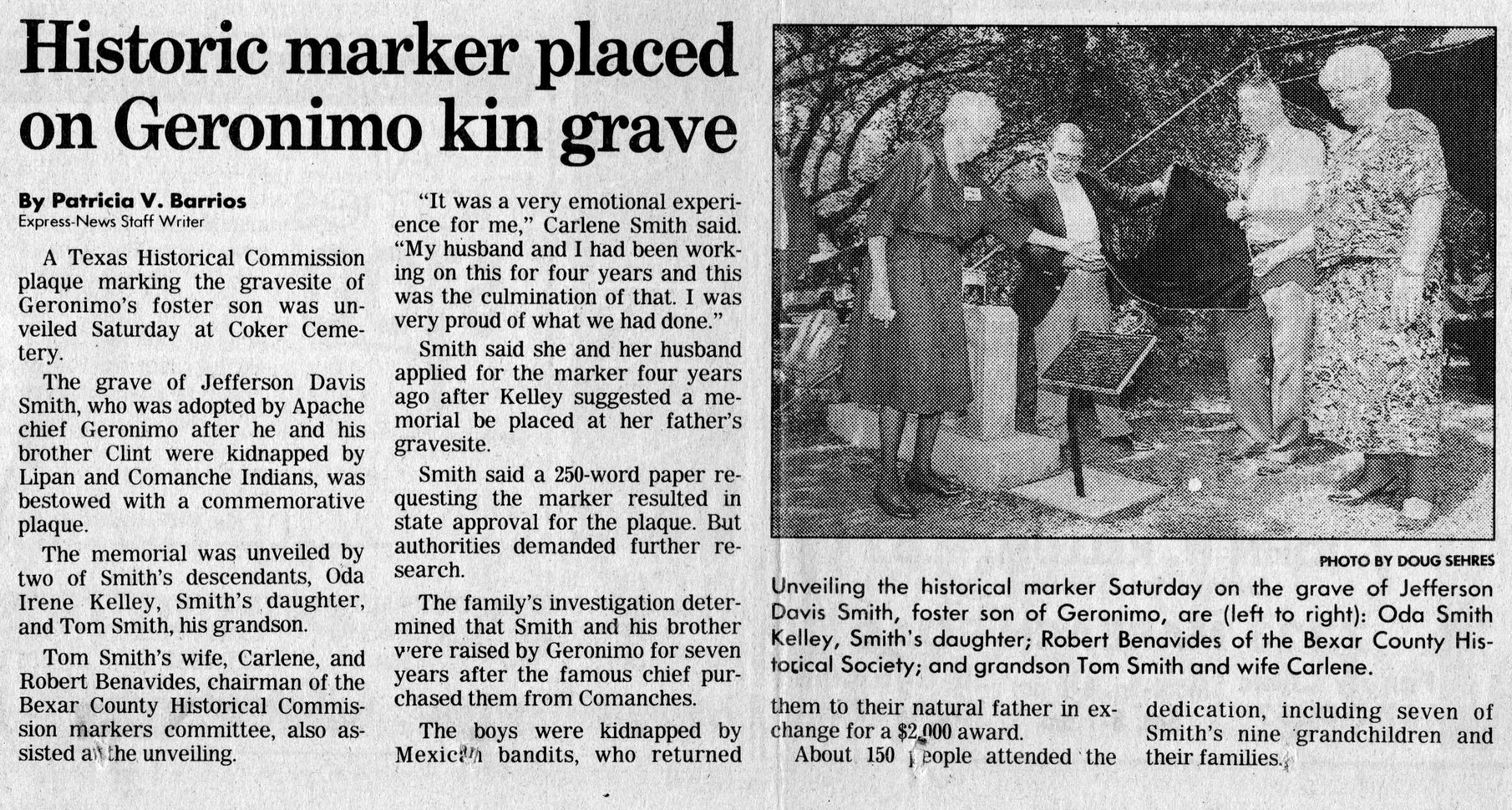
Coker Cemetery Association, San Antonio, Texas
 |
Coker Cemetery Association, San Antonio, Texas |
 |

|
HISTORY | |||
Coker Cemetery History #24 - November 2010by Bob Battaglia *********************************************** 
wars and their hunts and their firelit [fire lit] ceremonials—was all the
life he knew. He forgot the English language and the civilized ways of his parents and became, to the core, an
Indian.
Three years after his capture, the Comanches traded Jeff to the Apaches for a horse, and Jeff met the only really close friend he found among the savages—Geronimo, the brutal killer of scores of frontiersmen and their families. It was to this savage chieftain that Jeff turned when life became too hard, and it was from him that he received justice and advice. As he learned to hunt for game with bow and arrow, the white child was harassed frequently by a larger Indian boy who stole his arrows. For losing the missiles Jeff was punished harshly by the squaws in whose care he was placed. GOES TO GERONIMO Timidly he took his problem to Geronimo.“If he bothers you again,” said Geronimo, “shoot him. I’ll see that you’re not harmed for it.” When the Indian boy made his next foray, Jeff sent him yipping for camp with a neatly-spotted arrow. The chief made good his promise. But even with the chief for a sponsor, life was no weiner [wiener] roast. While he was still quite small his squaw-mother frequently tossed him into icy rivers, simply for the pure sport of it. And the first buffalo he ever saw was one to whose back he was tied for a merry romp. He was rescued after the buffalo had worn himself out. All this—though painful at the time—has had its good effect, Smith feels. He attributes his longevity and present hardy condition to the rigors of Indian ways. All in all, he was not treated much worse than were the Indians’ own children, and presently he forgot that he was not actually one of them. Especially did this become true after Clint, a reminder of home, was separated from him in one of the periodic migrations. He was well-fed by his captors, except for one trek during 1870 when the tribe ran out of food in New Mexico and traveled hungry for days. Being older, Clint—who is now dead—was permitted to accompany the Indians on raiding parties. FOUND BY TROOPS The nearest Jeff came to real adventure was in the New Mexico battle in which he was rescued from the Indians by federal troops. In that encounter, led by General McKinsie, he was assigned the job of guarding the horses, and his own horse was shot from under him.When the tribe scattered, Jeff hid in a cave, but was found by the troops and returned to his now-forgotten parents at Dripping Springs. Having forgotten them, he regarded them simply as new masters. His real name had slipped from memory and Catchowitchee—or Horsetail—was the only term of address to which he answered. More than 60 years have passed since then—years in which Smith served as a trail driver and did many other things—but one tangible record of his Indian captivity remains with him. He still carries the brand of ownership placed there by the tribes on each cheek. ***********************************************  Published in the San Antonio Express-News on 7/24/1994 |
||||
| click here for a PDF of this article |
click here to return to the top of this article |
|||